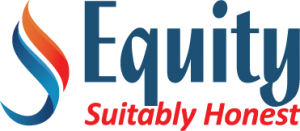
SoftSettle Support
Your credit card provided by the bank gets you into a contract with the bank and you are under a liability to pay the dues. First of all bank will start charging you fine for certain periods in default of payment.
Secondly, they can lower your ratings and apply some sanctions on your account.
Thirdly, as default of payment is a breach of contract therefore banks can send you legal notice which you have to respond within 30 days.
Legal team of the bank can file a recovery suit which is civil in nature and can get you hooked in long terrible court proceedings.
One can also be made criminally liable for default as well if recovery amount is high. But usually civil procedures are occurred.
Generally, banks will not jump to legal action immediately, to recover its dues, unless it is inevitable.
They will try to negotiate with the defaulter offering certain concessions of interest or waiver of certain compound interest etc. to settle the dues of defaulter. If the defaulter does not respond to its offer or its various notices and personal visits of its staff, theThey may entrust the job of recovery to the Recovery Agents, who are empanelled by the bank for initiating further action.
The next step, taken by the banks to take the help of the Recovery Agents may not be as soft as it was. The Recovery Agents are real professionals, who are masters in the techniques of various methods of recovery including shaming and naming — will go to any extent for the recovery of dues, for which they will get their share.
So, the agents are real tough persons and are generally very adept in their profession.
Banks may offer one time settlement by compromise or settle the dues thru Lok adalath or other modes of recovery procedures.
After exhausting all the chances of a compromise settlement of credit card default dues, banks may be forced to go for filing a suit against the defaulter and other co-obligants or sureties, if any, for recover of dues. once after getting the favourable judgement, they may take suitable action for enforcing the recovery procedure as suggested in the court order.
The best solution is to inform the bank about your intention. Meet the Bank guys directly in the credit card division. Explain them the situation & then talk to them about finding some settlement option. And based on the settlement option whatever suits you the best make sure to stay on the same. Dont again change the settlement option provided to you.
If you will meet and talk directly with the credit manager/ or the collection people at the credit card division of the bank, the possibility is of normal settlement and not much of a chaos of any legal action instantly.
Meeting Bank personnel directly or interacting with them to express excuses usually be a hard task for you so far you have not complied with the norms of repayment against the credit card loan. Hence the ideal option is Soft Settle. Soft Settle may help you avoid such embarrassing situation by providing you an opportunity to interact with Bank or their creditor virtually and as a result the Bank would desist all types pressurization practice applied to the debtor in the form of recovery proceedings. You may get time to tap the resources to pay the liability off. Further you join with your creditor to negotiate to the effect of getting time and if required further extension of monthly instalments. An agreement is generated to this effect. Now you can manage you financial problems and control it as per your convenience.
But this time you have to comply with the agreement. But if you will fail again, then the banks may go through the Civil proceedings.
But Soft Settle is deemed to be an ideal option so far it is a blessing for the debtors to find time when they are already in a mess subjected to civil or criminal proceedings to be initiated by the creditor. Soft Settle supports the debtor to find further time to arrange payments against settling the credit card debt likely to be a Damocles Sword hanging on the debtor’s head.



